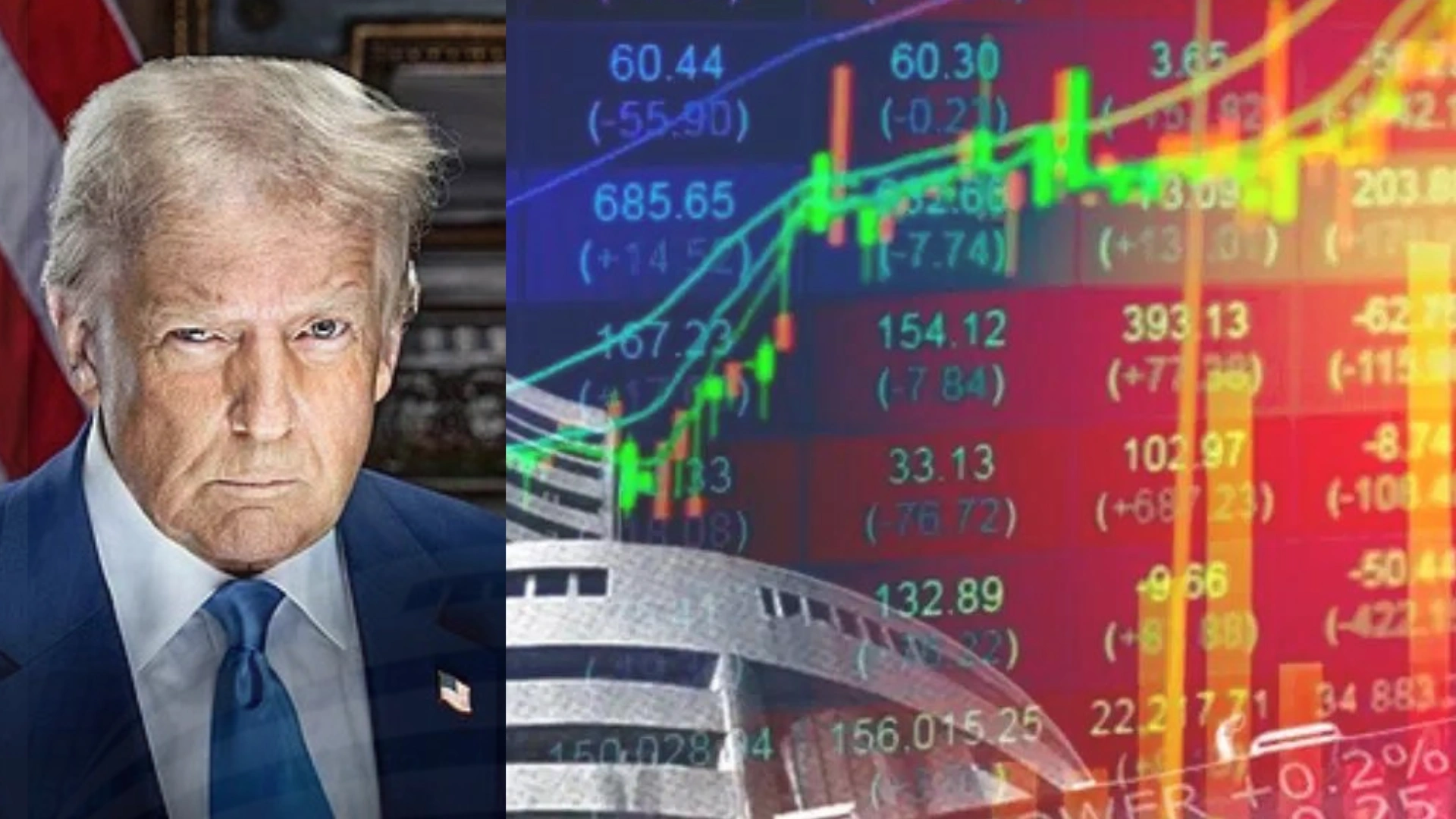Trump’s Tariffs: On April 2, President Trump imposed reciprocal tariffs on over 180 countries, placing India in the steep 26% tariff bracket. This is higher than the tariffs imposed on the European Union (20%), Japan (24%), and South Korea (25%), and marks a significant setback for trade relations between India and the US. China, in contrast, faces a much steeper 54% tariff. The announcement, dubbed ‘Liberation Day,’ also introduced a 10% baseline tariff on all goods entering the US. However, the reciprocal tariffs are set at half the rate that other countries impose on US exports. This decision has raised concerns in India, particularly within sectors such as automotive, pharmaceuticals, and manufacturing, which are vulnerable to these new trade barriers. Experts warn that this move could create volatility in the markets and economic challenges for India unless the two countries can negotiate more favorable terms in upcoming trade talks.
Trump’s Tariffs Effected Indian Stock Market
The Indian market reacted sharply and immediately. The BSE Sensex dropped over 500 points, and the Nifty50 fell below 23,200 within 15 minutes. Gift Nifty also dropped 1.5%, reflecting the negative sentiment. The rupee weakened against the dollar, hovering around 85.69 amid market volatility. Trump’s tariffs caused an immediate negative reaction in the Indian bourses, signaling concerns over their impact on the economy.
Key Sectors That Are Under Trump’s Tariffs Impact
Pharmaceuticals
The pharmaceutical sector, contributing $12.2 billion to Indian exports, has escaped immediate tariffs, benefiting major companies. Analysts like Bernstein and CLSA expect limited short-term impact, Jefferies believes the near-term impact will be minimal but warns that broader tariffs could drive up US-based generic pharma stocks. While the sector is currently exempt, analysts are cautious about potential future changes to the tariffs. As pharma stocks had already factored in a 10% tariff. Companies with significant US revenue exposure include:
- Syngene (68%)
- Gland Pharma (54%)
- Biocon (50%)
- Zydus Life (45%)
- Dr. Reddy’s (43%)
- Piramal Pharma (41%)
- Lupin (35%)
- Sun Pharma (30%)
- Cipla (28%)
- Alkem (20%)
- Nifty Pharma rose by 2.73%.
Auto Industry
The automotive sector, which contributes around 3% of India’s total exports to the US, is likely to face challenges due to the new tariffs. Stocks of automakers like Tata Motors and Samvardhana Motherson may be affected. Shares of leading US and Asian automakers also dropped following the announcement. The impact was felt on Nifty Auto, which fell by 0.64%. This could result in higher production costs and reduced competitiveness for Indian auto exports in the US market.
IT Sector
Nifty IT fell over 3% following Trump’s reciprocal tariffs, driven by concerns over a looming recession and reduced discretionary spending. Analysts downgraded the sector to equal-weight due to growing risks of a US recession. The sector’s vulnerability to these economic pressures, including potential cuts in IT spending, has led to negative sentiment among investors. With recession fears mounting, the IT industry faces significant challenges, reflecting broader market concerns about the US economy’s impact on Indian exports.
Manufacturing and General Exports
Exporters outside pharmaceuticals and automobiles will face challenges under the 26% tariff, affecting competitiveness and slowing growth. Sectors like iron and steel, electronics hardware, machinery, gems and jewelry, and refined petroleum products are most vulnerable. Macquarie estimates a 50 basis point hit on GDP due to these tariffs.
Other top exports under the effect:
-
Machinery (15.6%)
-
Gems & Jewelry (11.5%)
-
Machinery for nuclear reactors (8.1%)
-
Refined petroleum products (5.5%)
These are the sectors that have shown an immediate reaction to the imposition of tariffs by Trump.























